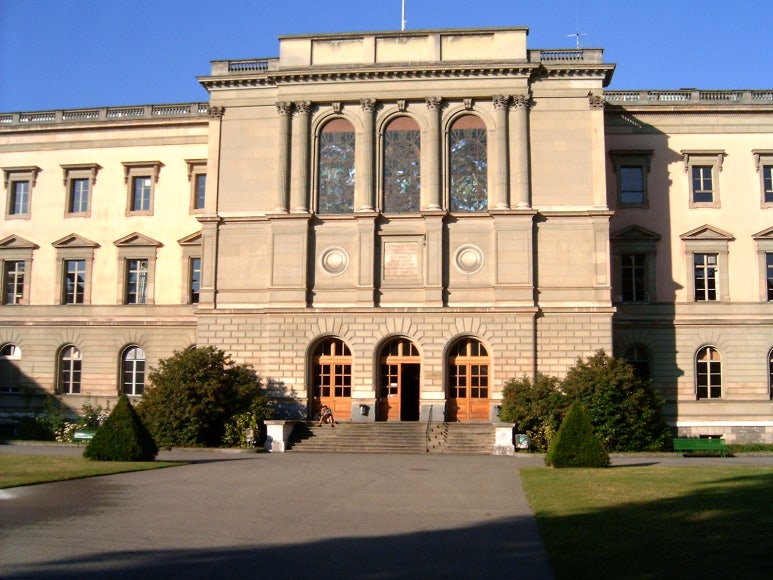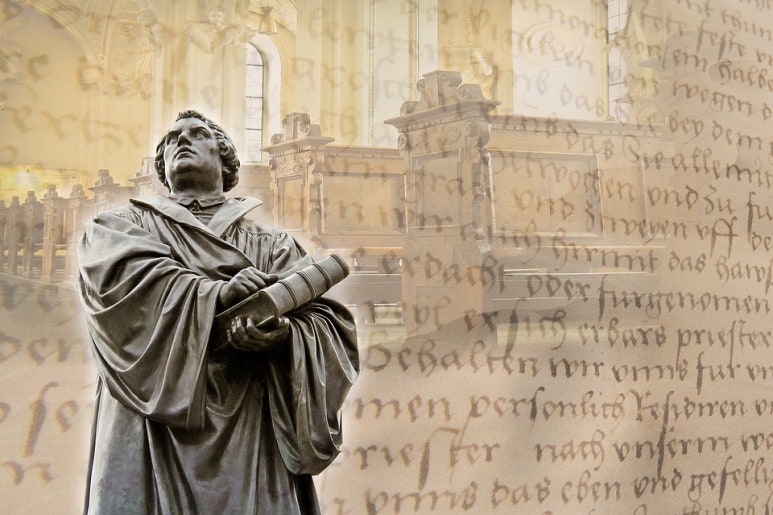Reform the Reformation!
Ⅰ. Introduction
In general, tradition is understood as historically transmitted material culture, thought and behavior patterns, impressions of people or events, and various groups of symbols, and reform is understood as a rehabilitation of institutions or institutions. In English, reformation is a concept that contains the nuances of'change'. In this paper, we will examine the value judgment of tradition and reform within the framework of religious reform.
Ⅱ. Main subject
In the literal sense of tradition, it means historically inherited material culture, thought and behavior patterns, impressions of people or events, and various symbol groups. Tradition implies subjective re-evaluation of the culture passed down from the past. Therefore, it is not meant to be a simple convention or practice. We develop a good tradition of ancestors. However, in bad traditions, we must boldly escape. The most representative example of the discussion of tradition and reform is the good example of the Reformation against Catholicism. In the midst of the renaissance of the Reformation, Roman Catholics responded to their own changes and held the Trent Council (1545~1563, 19th Ecumenical Council) to pursue reform in their own way. However, the result was only a reactionary decision on the Reformation. Roman Catholics instituted seven sacraments and held religious reforms that were largely tied to form, but they were attacked by Reformedism, but the form remains unchanged even today. It was the Reformed faith that reformed the tradition, but the Reformed faith also changed in the future, and the model of Reformedism in the 16th century also became a tradition when viewed by the theological thoughts afterwards. Therefore, tradition should be viewed as any idea or idea belonging to a constantly changing culture or institution, rather than being determined in any age or region. Therefore, the idea of a desirable tradition that we should have should be not only to successively inherit a good tradition, but also to put it into reality and boldly reform and discard it. In the history of Christianity, recognition of the sacraments was a very important value judgment. Although there were many negative aspects, Roman Catholics established their own traditions of the apostolic era and created rituals, which were seen as a shame in the eyes of the Reformers. In Protestantism, there was a strong perception that it was a practice. In the end, Luther and Zwingli's interpretation of the Lord's Supper also became a struggle for another tradition and reform. Therefore, we can say that we need a more appropriate standard of reference than a divide between tradition and reform. Calvin emphasizes the equality of positions (one position does not dominate another) and the uniqueness (one position does not invade another) in ‘Christianity’. The key to office is in'roles and functions', not in rank. It is also said that the Presbyterian tradition means that a pastor or teacher also selects the right person from among the members of the congregation and entrusts the position. There are, of course, strict selection criteria in this case as well, but it would be the premise that one of the ordinary believers is an ordinary human. Is the modern Korean church keeping this Presbyterian tradition? The reality is that it is not at all. Tradition is criticized and corrected by new reforms. However, the reform is only an effort to return to tradition, the original unmodified tradition. Luther's idea of reform, which turned the 16th century upside down, was actually an effort to return to the tradition of the Early Church. Eventually, his reform theory results in being exploited by real political forces. Reform refers to the reformation of new institutions or institutions. Especially in Christian history, it often means reformation. Reformation was a revolutionary movement of faith that took place in Europe in the 16th century to correct errors and ethical corruption in Roman Catholic doctrine. At that time, the reformers' reform movement was a challenge to put their lives on and challenge, as the phrase “the Bible in one hand and the sword in one hand” means. What they wanted to reform was not to mean a new religion, but to return to the original faith of the early church. The term “reform” in the Reformation should be understood as “recovering the first right thing.”
We now classify all existing theological tendencies as traditions and understand the present and the future direction as reforms. What is doctrinally wrong and wrong must be reformed in the Bible and changed every day. I think that most of our reform thinking is to be tested by the church community, with each Christian establishing his theology and constantly checking whether it is correct in the light of the Bible. Beginners or believers with a low level of faith should be guided by the pastor's guidance, but those who have studied theology to some extent should try to establish the correct theology. Reform from the Christian should be understood as the process of dying and rebirth every day. We are human beings who have already committed crimes in their hearts, both before and after conversion. And it implies the possibility of committing a crime that cannot be done in the future. It must be gradually changed by just dying every day and being born again in Christ every day. On the one hand, the term "radical" is implied in the term reform. We can think of what we need to change to mean that we must change at once. When we think that it is our situation to make a mistake, to repent, and to make a mistake again, it means that we get great enlightenment at any moment through repeated repentance every day. That can be changed'at once'. Reform for the office in the church must first understand the Bible's words in the Word through comments and meditation, and endless study must be done. So the pastor's continued study is important. In addition, the role of elder Chiri is emphasized in the sacrament matters, and it is necessary to judge who will participate in the sacrament and baptism, and the ambition of the elder should be considered important. In fact, even today's churches often do not clearly state who can participate in the sacrament. It should definitely hold the concept. Reformers encouraged and sometimes criticized the lives of believers to establish a healthy church. This ecclesiastical tradition is true even when I read 1 Corinthians. It was clear discipline. In modern churches, this must be strictly enforced. In the end, reform may return to the original church's pure faith. In reality, what can reform mean in the Korean church? Should we reform? The Reformation was their reform in the West. Our church did not reform itself. Of course, we accepted the Protestantism they achieved very later, but we must reform it in our reality. It is necessary to reform the denomination that accepts the Gospel as a relief faith and devotes itself only to the growth of the church, prayer practices that are indistinguishable from faith or superstition.
Ⅲ. Conclusion
Reformation of the 16th century began with pure religious passion, such as Luther and Calvin, and many people were burned or hanged to keep their faith, but most should be regarded as proceeding to serve their own worldly interests. Some see the Protestant movement itself as a Tutonic resistance against the Latins, and it is said that the protests against Rome were driven by economic motives. Perhaps the Reformation was a combination of various factors.
In Roman Catholic history, it seems that from the 7th to 8th centuries, the church's neo-philanthropic passions began to deteriorate and began to decay. The punishment was that the corruption was swollen like a boil. It should be thought that the seeds of the Reformation were sown from the 4th-5th centuries. However, not all of the Middle Ages were corrupt. The representative movement is the Monastery. It should be recalled that Luther was also a monk. Reformers' reforms, such as Luther and Calvin, eventually ended up in the interests of most economic actors. True reforms will be in the minds of each individual believer. In the end, the Reformation of the 16th century was affecting the fields of politics, economy, society, culture, and the family as well as at the time. However, these were simply byproducts. Faith and godliness are all-inclusive, inner reflections that are deep inside. Only one can know who truly reforms corruption and has the right faith. Obviously the reformers went through reforms with a great spirit. We are not just succeeding in their reforms, but finding the basic principles from the legacy and adapting them in our situation.
This post (posting) is a personally copyrighted article (including photos) from the Multilingual Bible Institute. Unauthorized reproduction, distribution, and processing are not allowed, but can be used when specifying the source and URL of the material. This institute is an organization that supports the multilingual Reading the Bible movement for missionary activities and the Bible translation work of unreached minorities. In addition to the Bible Hebrew and Bible Greek classes for reading the Bible, the lectures of classical Latin are available (online and offline available). We also offer English courses through the BIBLE ENGLISH system, which is aimed at children and adults. This post (posting) is translated into four languages: English, Chinese, Japanese, and Korean, and is serviced all over the world, actively supporting the mission of Christian missionaries.
Inquiries about partnerships such as missionary activities: usedslr@gmail.com, YouTube: Multilingual Bible Research Institute
'ENGLISH EDITION > RELIGIOUS REFORMATION' 카테고리의 다른 글
| Reformation History (Roland H. Bainton)-3 (0) | 2020.06.27 |
|---|---|
| Reformation History (Roland H. Bainton)-2 (0) | 2020.06.27 |
| Reformation History (Roland H. Bainton)-1 (0) | 2020.06.27 |




.jpg?type=w773)

